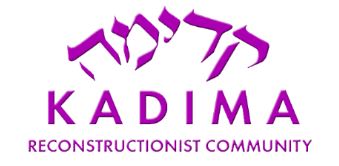I am thinking about this as we go into Rev. Dr. Martin Luther King Jr. weekend, honoring the birthday of the oft quoted modern prophet, in the week of the story of Moses’ organizing of Pharaoh and the Israelites, on the heels of another public action from Rabbis for Ceasefire, this time inside the United Nations (while I was planning on being there, illness kept me in Seattle this week) as well as a Palestinian-led Jewish-supported action to shut down I-5 in Seattle. Ultimately, none of these prophetic voices held back their calls for justice, despite all of them perhaps also not desirous to be in the position they found themselves.
They looked around and saw no one else who could do what they could do, and they did what they could. We each offer something unique that if we do not find the audacity and humility to offer the world it may never come to be at all. And who are we to know if our particular offering might help the tipping point – that moment that actually causes the moral arc of the universe to bend toward justice?
From my position, I often find myself organizing on behalf of the liberation of others. Sometimes, though, and very importantly, I must advocate for myself in the midst of it all. I must tell a comrade, ally, leader, elder, student, or friend that what they are doing does not work for me. That their organizing or messaging goes against my interests, and if we are going to achieve the collective liberation for which we both strive, we need to find a way that works for us both. This comes up most often for me around antisemitism, and I have noticed myself feeling less “heavy mouthed” about it than ever before.
While I have always been opposed to antisemitism as a part of a vision for collective liberation, it has been at times challenging to call out. Especially when insincere weaponization of antisemitism is so common a tool used to attack progressive and radical leaders, including non-Jewish and often Muslim and/or BIPOC women as well as anti-zionist and non-zionist Jews. But it is also essential to call out antisemitism when it is indeed happening. And yes, we need to do so, and possibly more so, in these intensified times of emergency in Israel/Palestine.
So, I am learning to have a less heavy tongue – to find ways to speak even when I am not desirous of the mic and to prepare myself to do so grounded, centered, and with perspective. May it be so for us all.
Shabbat shalom,
R’ David

 RSS Feed
RSS Feed